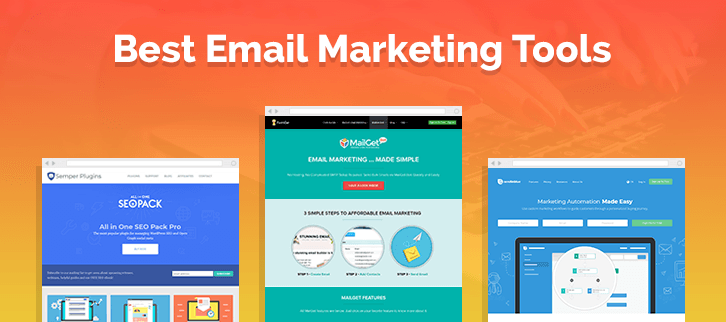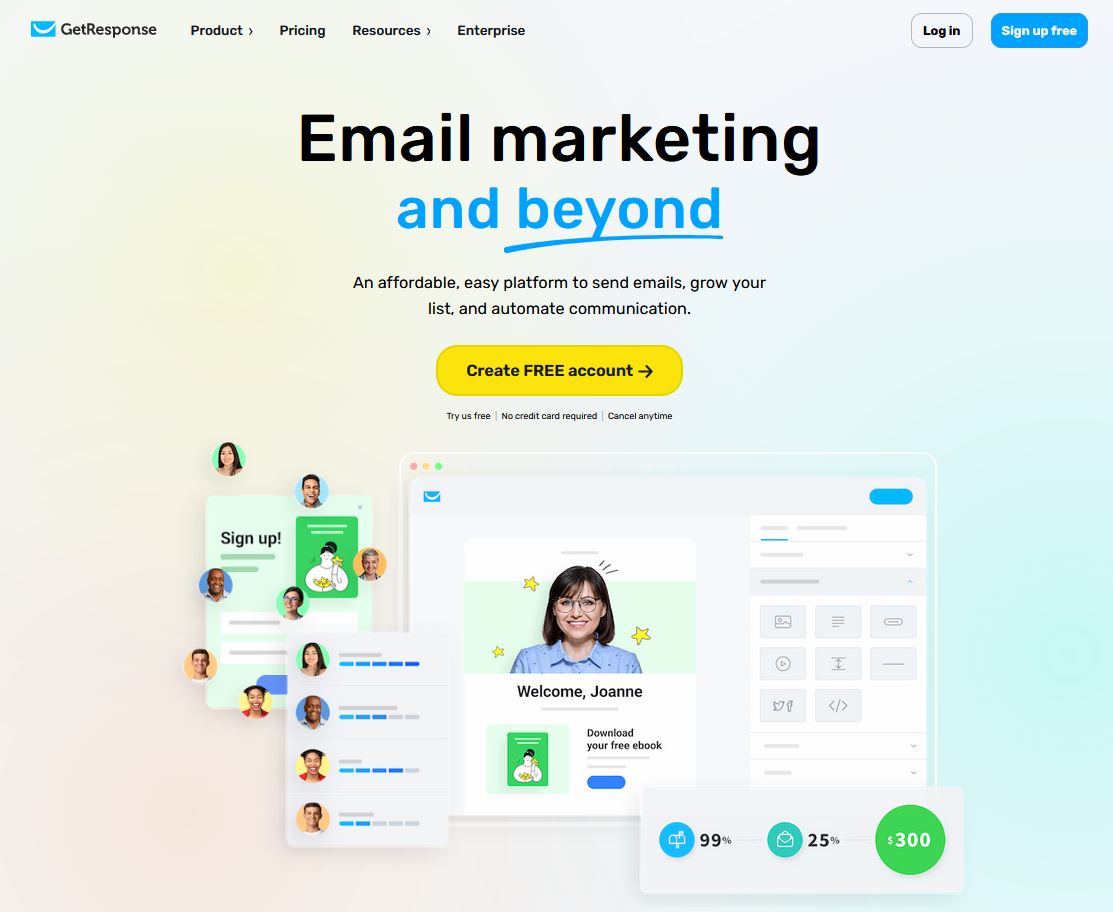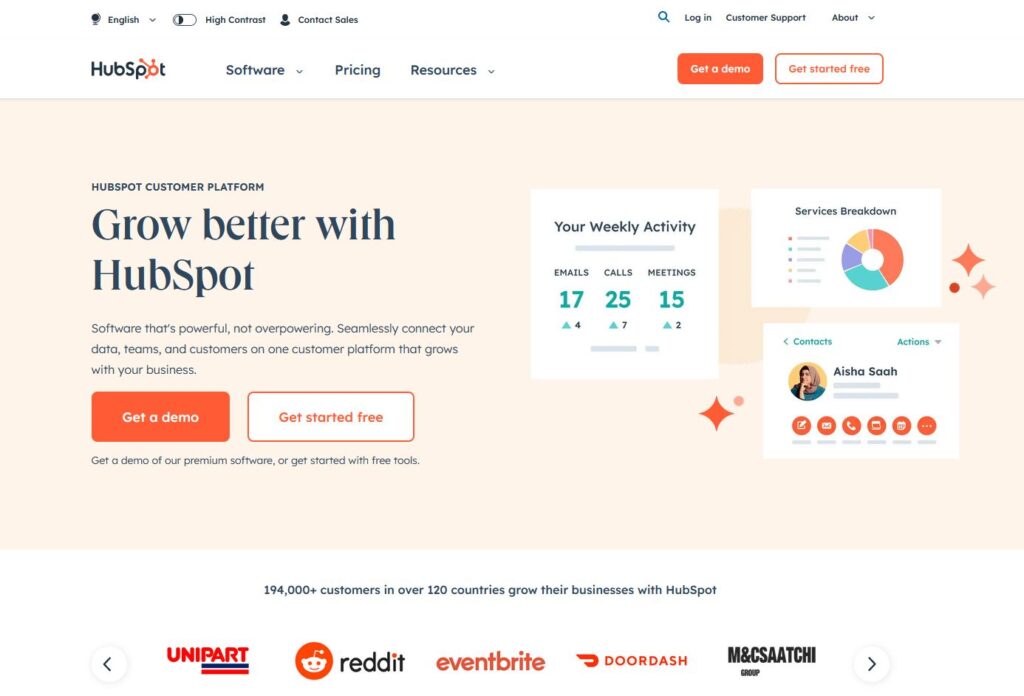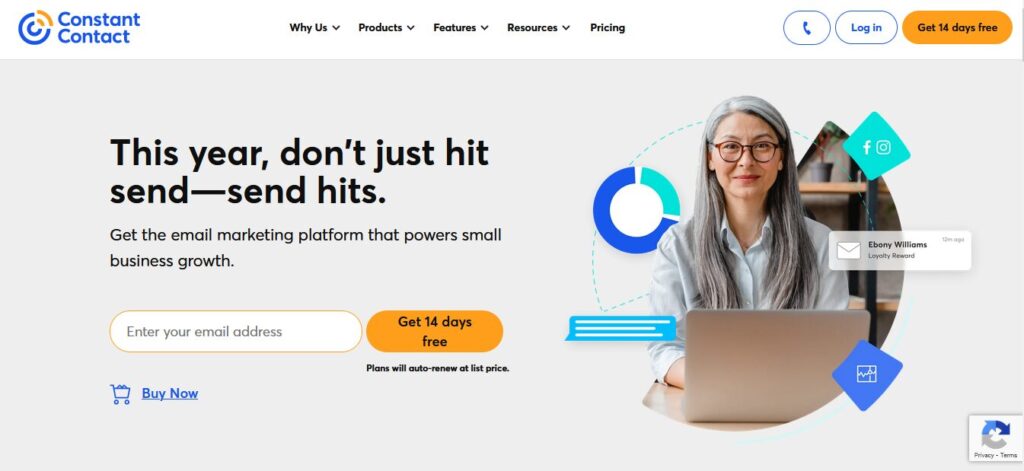
Email marketing continues to be a pivotal strategy for businesses aiming to build strong relationships with their customers and drive conversions. This direct and personalized communication channel allows companies to reach out to their audience with tailored messages, fostering engagement and loyalty. The power of email marketing lies in its ability to deliver targeted content to a segmented audience, making it an essential tool for businesses seeking to maintain a meaningful connection with their clients and customers.
Selecting the right email marketing tool is critical for maximizing the effectiveness of your campaigns. The best platform should not only simplify the creation and distribution of emails but also offer insights into the performance of your campaigns, enabling you to continuously refine your approach for better results. As we move through 2024, the array of email marketing tools available is vast, each offering unique features designed to enhance customer engagement and streamline marketing efforts.
From automation and detailed analytics to customization and seamless integrations, choosing the right tool can significantly impact your marketing success. To guide you through this selection process, we’ve curated a list of the 5 best email marketing tools, highlighting their key features and how they cater to different business needs.
Discover the Best Email Marketing Tools for 2024

As we delve into the specifics of each email marketing tool, it’s essential to understand the unique strengths and capabilities they bring to the table. In an era where digital marketing strategies can make or break a business, choosing the right email marketing platform becomes not just a decision but a strategic investment.
These tools are designed to not only enhance your ability to communicate effectively with your audience but also to provide actionable insights that can drive your marketing strategy forward. From automation features that save time to analytics that sharpen your campaigns, each platform offers something valuable. Let’s explore these top contenders in the email marketing space, examining how they can elevate your digital marketing efforts and help you achieve your business objectives.
1. GetResponse

GetResponse has grown from a simple email marketing tool to a comprehensive digital marketing solution, catering to a wide range of users from beginners to seasoned marketers. Its intuitive design and powerful suite of features make it an ideal choice for businesses looking to expand their digital footprint. With GetResponse, users can create engaging email campaigns, automate marketing processes, and analyze the success of their efforts with ease.
Key Features:
- Advanced email automation and segmentation
- Intuitive drag-and-drop email editor
- Comprehensive analytics and reporting tools
- Landing pages, webinars, and conversion funnels
Plans and Pricing:
- Basic Plan: Starts at $15/month for up to 1,000 subscribers, offering essential email marketing features.
- Plus Plan: Begins at $49/month, including automation builders and webinars.
- Professional Plan: Priced at $99/month, adding unlimited automation and paid webinars.
- Max Plan: Custom pricing for advanced needs, offering tailored solutions and dedicated support.
Pros:
- Versatile marketing platform with a wide range of features
- User-friendly interface suitable for all skill levels
- High deliverability rates ensure emails reach their intended audience
Cons:
- Pricing can quickly escalate as your subscriber list grows
- Some advanced features are locked behind higher-tier plans
More: GetResponse continues to innovate, regularly adding new features and integrations to keep pace with the evolving digital marketing landscape. Whether you’re launching your first campaign or looking to optimize your marketing strategy, GetResponse provides the tools and support needed to succeed.
Read our full GetResponse review →
2. MailChimp

MailChimp stands as a titan in the email marketing domain, offering an extensive array of tools that cater to the needs of businesses of all sizes. Renowned for its user-friendly interface and robust marketing features, MailChimp facilitates the creation, sending, and analysis of email campaigns with unparalleled ease. It’s particularly favored by small to medium-sized businesses looking to enhance their email marketing efforts without investing heavily in technical resources.
Key Features:
- Comprehensive email campaign management
- Detailed audience segmentation and behavioral targeting
- A/B testing for emails and advertisements
- Extensive template library and creative assistant
Plans and Pricing:
- Free Plan: Supports up to 2,000 contacts and basic email sending capabilities.
- Essentials Plan: Starts at $9.99/month, offering access to all email templates and A/B testing.
- Standard Plan: Begins at $14.99/month, introducing advanced automation and retargeting ads.
- Premium Plan: Priced from $299/month, for professional marketers needing sophisticated segmentation and multivariate testing.
Pros:
- Intuitive design and ease of use make it ideal for beginners.
- Generous free plan suitable for small businesses and startups.
- Wide range of integrations with other platforms and services.
Cons:
- The jump in pricing between tiers can be significant as needs grow.
- Advanced features and customization options are limited in lower-tier plans.
More: MailChimp’s commitment to innovation and user satisfaction has made it a go-to solution for email marketing worldwide. With its scalable solutions, businesses can grow their marketing strategies alongside their audience, making MailChimp a versatile partner in digital marketing success.
Read our full MailChimp review →
3. AWeber

AWeber is recognized for its dedication to simplifying email marketing for small businesses and entrepreneurs. With a legacy of over two decades in the industry, AWeber focuses on delivering reliable email marketing solutions that are both powerful and easy to use. Its comprehensive set of tools supports businesses in creating personalized and engaging email campaigns that drive results.
Key Features:
- Over 600 pre-designed email templates
- Automated email campaigns and autoresponders
- Advanced segmentation and analytics
- Integration with leading web services and tools
Plans and Pricing:
- Free Plan: Supports up to 500 subscribers and includes basic email marketing features.
- Pro Plan: Pricing starts at $19.99/month for up to 500 subscribers, with costs increasing based on the subscriber count. The Pro Plan unlocks advanced features like detailed analytics, split testing, and behavioral automation.
Pros:
- Extensive template library for quick campaign setup
- User-friendly interface suitable for beginners and professionals alike
- High deliverability rates ensure emails reach subscribers’ inboxes
Cons:
- Limited customization options in the drag-and-drop editor
- Pricing can become a concern as your subscriber list grows beyond the free plan limit
More: AWeber stands out for its customer-centric approach, offering a range of resources and support to help users maximize their email marketing efforts. From comprehensive guides and video tutorials to live customer support, AWeber is committed to helping businesses succeed in connecting with their audience effectively.
4. HubSpot

HubSpot is renowned for its all-in-one marketing platform, which goes beyond traditional email marketing to offer a comprehensive suite of tools that encompass CRM, sales, and customer service functionalities. This integration makes HubSpot an ideal choice for businesses looking to manage all their marketing efforts in a cohesive and streamlined manner. With its focus on inbound marketing, HubSpot helps businesses attract, engage, and delight customers throughout their journey.
Key Features:
- Integrated CRM to keep track of all customer interactions
- Automated email marketing campaigns based on user behavior and preferences
- Detailed analytics and reporting across marketing, sales, and service
- Customizable email templates and a powerful visual editor
Plans and Pricing:
- Free Tools: Offers basic CRM, email marketing, and customer service features for an unlimited number of users.
- Starter Plan: Starts at $45/month, introducing more advanced marketing tools and customization options.
- Professional Plan: Begins at $800/month, designed for growing businesses with needs for automation, segmentation, and analytics.
- Enterprise Plan: Priced at $3,200/month, offering extensive customization, advanced reporting, and higher-level support for large organizations.
Pros:
- Comprehensive platform that covers a wide range of marketing needs
- Deep integration between email marketing and other HubSpot tools enhances customer insights
- Extensive resources and support for users to maximize their marketing efforts
Cons:
- The cost can escalate quickly as businesses grow and require more advanced features
- The platform’s extensive capabilities may present a steep learning curve for new users
More: HubSpot’s dedication to providing a full-fledged marketing solution makes it a standout choice for businesses committed to implementing a holistic marketing strategy. With continuous updates and a strong emphasis on user education through the HubSpot Academy, businesses have the tools and knowledge at their disposal to succeed in the competitive digital landscape.
Read our full HubSpot review →
5. Constant Contact

Constant Contact has solidified its position as a trusted email marketing service, especially popular among small businesses and nonprofits. It distinguishes itself with an emphasis on simplicity and effectiveness, offering a straightforward platform for those new to email marketing while still packing a punch with its range of features. Constant Contact is designed to help users quickly create professional-looking emails, manage subscriber lists, and track the success of their campaigns with comprehensive analytics.
Key Features:
- An extensive collection of customizable email templates
- User-friendly drag-and-drop email editor
- Powerful list management and segmentation capabilities
- Detailed reporting and analytics to gauge campaign effectiveness
- Integrated event management tools and social media marketing features
Plans and Pricing:
- Email Plan: Starts at $20/month for up to 500 subscribers, focusing on basic email marketing features.
- Email Plus Plan: Begins at $45/month for up to 500 subscribers, adding advanced features like automated email series, online donations, and surveys & polls.
Pros:
- Intuitive platform ideal for beginners and small businesses
- High deliverability rates ensure emails reach their intended audience
- Strong support system with live chat, phone support, and a vast library of resources
Cons:
- Limited automation and customization options compared to competitors
- Pricing can become relatively high as the subscriber list grows
More: Constant Contact’s commitment to user success is evident in its extensive educational resources and responsive customer support. The platform continuously evolves, introducing new features and integrations to enhance its email marketing capabilities. For businesses and organizations looking for a reliable, no-fuss email marketing solution, Constant Contact offers a balanced mix of functionality and ease of use, making it a compelling choice in the crowded email marketing space.
Read our full Constant Contact review →
Finding Your Perfect Email Marketing Tool
Selecting the ideal email marketing tool for your business is a decision that requires careful consideration of your specific needs, goals, and budget. The landscape of email marketing platforms is diverse, with each tool offering its unique blend of features, usability, and pricing structures. To make an informed choice, it’s crucial to assess not just the immediate capabilities of these platforms but also their potential to scale and adapt to your evolving marketing strategies.
When evaluating your options, consider the following factors:
- Ease of Use: The platform should have an intuitive interface that allows you and your team to create, send, and analyze campaigns without a steep learning curve.
- Feature Set: Look for tools that offer the specific features you need, such as automation, segmentation, analytics, and integration capabilities, to support your marketing objectives.
- Deliverability: High email deliverability rates are essential for ensuring your messages reach your audience’s inboxes, not their spam folders.
- Scalability: The tool should be able to accommodate your business’s growth, with pricing plans and features that can expand as your subscriber list and marketing needs grow.
- Support and Resources: Adequate support, whether through live chat, phone, or educational resources, can be invaluable, especially when you encounter challenges or seek to expand your marketing skills.
Ultimately, the best email marketing tool is one that aligns with your business’s current needs while offering the flexibility to grow with you. It’s worth taking advantage of free trials or demos offered by these platforms to get a hands-on feel for their features and usability. By thoroughly researching and testing your options, you can find a tool that not only meets your email marketing requirements but also enhances your overall marketing strategy, driving engagement, and fostering lasting relationships with your customers.
